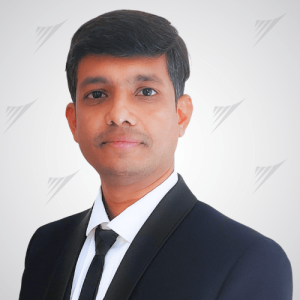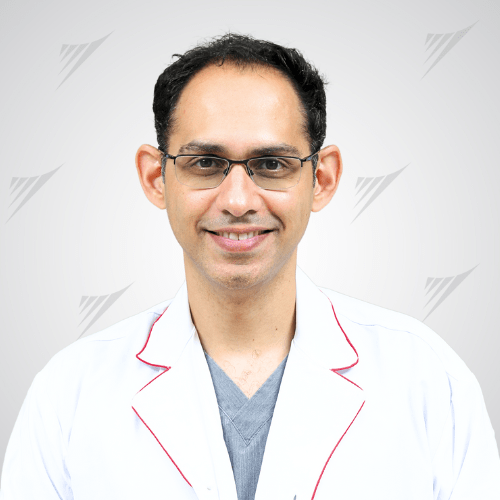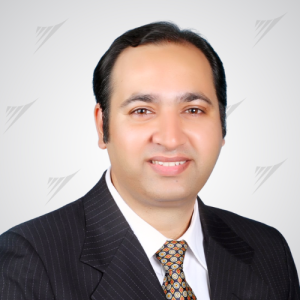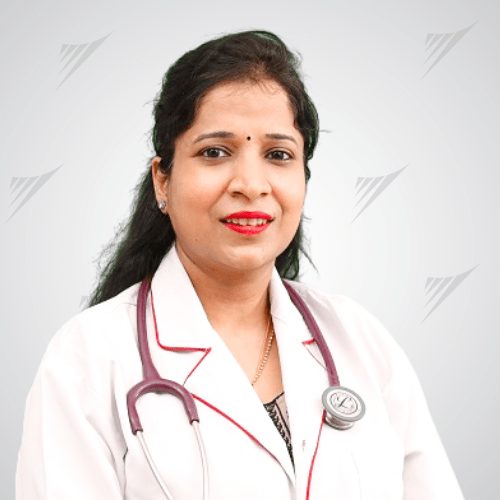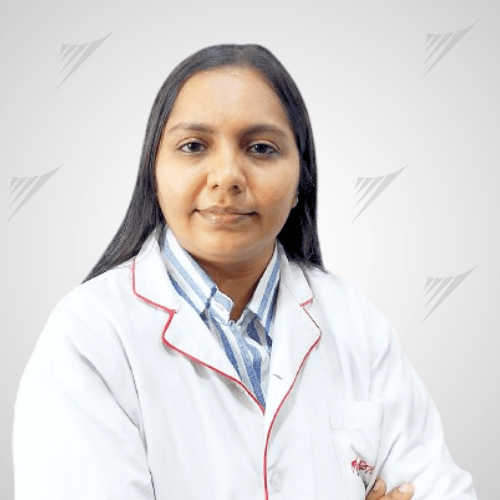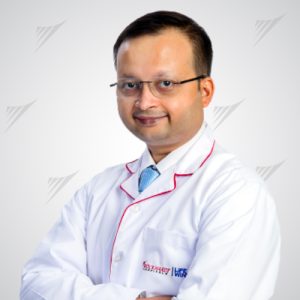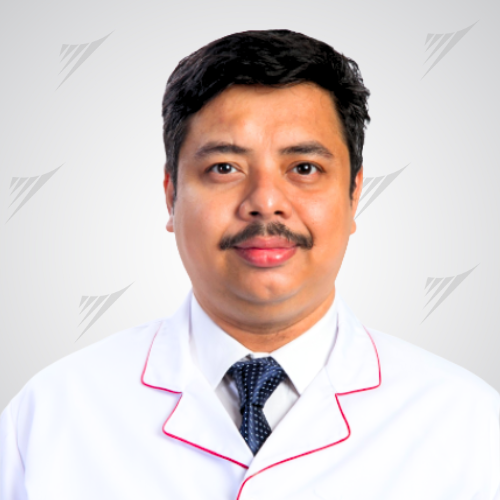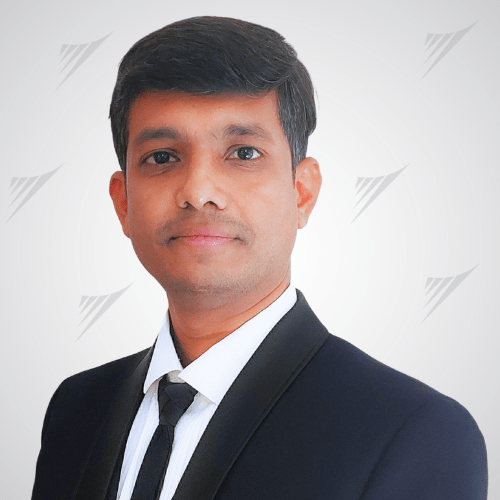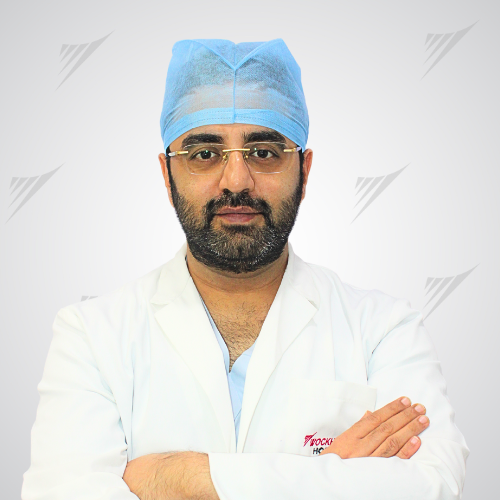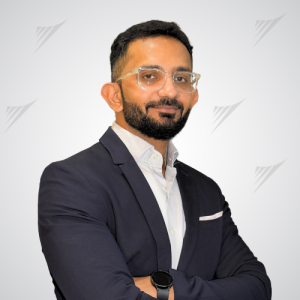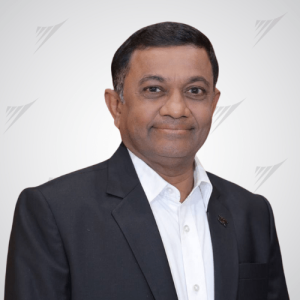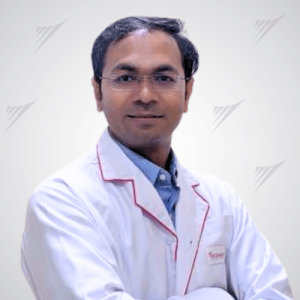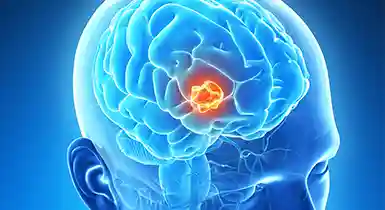Home » Speciality » Neurology & Neurosurgery
Neurology Treatment,
Procedure & Cost in India

Why Choose Wockhardt Hospitals for Neurology?
Wockhardt Hospital’s Department of Neurosciences is one of the leading Neurosurgery and Neurology hospitals in Mumbai, providing advanced treatment to patients ranging from infants to senior people. The diagnosis and treatment of Nervous system problems are the focus of the Neurology Department. Our multidisciplinary team, which includes some of the top Neurologists and Neurosurgeons, combines knowledge with the most recent technological advancements to provide the finest clinical services. The neurology department has an outpatient and inpatient wing. It is also equipped with the latest diagnostic techniques and a daycare facility. We provide services using a contemporary methodology that incorporates the equipment and techniques needed for both conventional and minimally invasive surgery. Make an appointment with one of our highly qualified and experienced neurologists now to learn more about neurological problems. Call us for more information.
Renowned Neurologist / Neurosurgeon at Wockhardt Hospitals
- Mumbai Central
- Mira Road
- Nagpur
- Rajkot
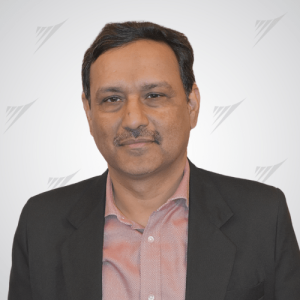
Dr. Bipin Bhimani
NeurologistRajkot
Book an Appointment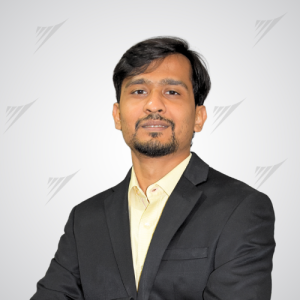
Dr. Ashutosh Dudhatra
NeurologistRajkot
Book an Appointment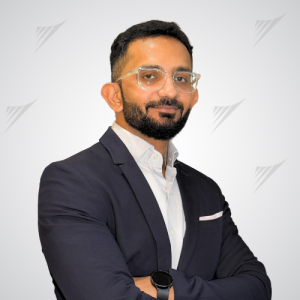
Dr. Jigarsinh Jadeja
NeurosuregonRajkot
Book an Appointment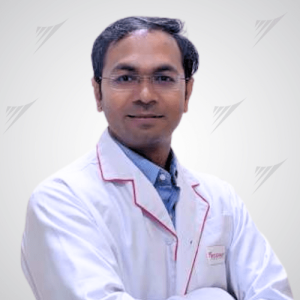
Dr. Viral Kumar Vasani
NeurosurgeonRajkot
Book an Appointment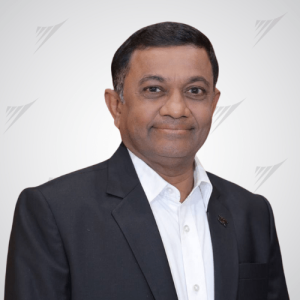
Dr. Kant Jogani
NeurosurgeonRajkot
Book an AppointmentWhat is Neurology?
The branch of medicine that specializes in surgery on the nervous system is called neurosurgery. The peripheral and central nerve systems combine to form the nervous system. The peripheral nervous system is made up of nerves and sensory receptors in the sense organs such as the eyes, ears, skin, etc, whereas the central nervous system is made up of the brain and spinal cord. The term “Neurosurgeon” refers to surgeons who perform neurosurgery.
Neurosurgeons perform operations on the nervous systems of the limbs or extremities, the spine, or the brain. From infants with congenital neurological disorders to old people, they treat patients of all ages.
Neurosurgery, despite being one of the recent medical specialties, now ranks among the most advanced medical fields in both science and medicine and makes use of some of the most cutting-edge technological advancements.
Spectrum of Neurology
To treat any anomalies such as tumors or aneurysms, neurosurgery, often known as brain surgery, involves performing surgical treatments on the brain or the tissues around it. The following brain conditions may necessitate Neuro-Surgical treatment:
- Congenital brain disorders such as blood vessel abnormality, where veins and arteries link in the brain.
- Internal bleeding in the brain is caused by an aneurysm when the artery wall deteriorates and ruptures.
- Brain surgery is used to treat blood clots and bleeding in the brain in order to protect nearby brain tissue from further damage.
- Brain surgery may be beneficial for Parkinson's disease when the neural impulses needed to govern motor function are insufficient.
- When brain tissue or the surrounding region becomes infected, the abscess may fill the area, and a brain operation may be advised to drain it.
- In some cases of epilepsy brought on by pressure on a nerve or an imbalance in the brain's structure, doctors may recommend neuro-surgery.
Types of Neurology
The following categories can be used to classify different types of Neurosurgery:
- Neuro-oncology - This is a specialty that focuses on brain and spinal cord tumours.
- Neurovascular Surgery - The name of this specialty, neurovascular surgery, refers to the study of blood arteries that nourish the nervous system and the issues they may have, such as aneurysms and narrowing.
- Functional Neurosurgery - Functional neurosurgery is a specialized branch of neurosurgery that focuses on surgical treatments for neurological conditions that affect movement and function, such as epilepsy, cerebral palsy, and movement disorders like Parkinson's disease.
- Paediatric Neurosurgery - Pediatric neurosurgery focuses on diagnosing and treating neurological conditions in infants, children, and adolescents. This includes the treatment of congenital abnormalities, such as brain and spinal cord malformations, brain tumors, and spina bifida.
- Traumatology - A neurosurgeon with expertise in traumatology performs surgery to repair damage to the nervous system, such as head traumas.
- Skull-base surgery - It focuses on diagnosing and treating complex anatomical conditions near the base of the skull. This includes the removal of tumors and other abnormal growths, repairing cerebrospinal fluid leaks, and managing various neurological disorders in this region.
- Spinal Surgery - It involves operating on the spinal cord, nerves, and vertebrae to diagnose and treat various spinal conditions, such as herniated discs, spinal stenosis, spinal deformities, and spinal cord injuries.
Diagnostic Tests for Neurology Treatment
A thorough medical history and physical examination are the first steps a healthcare professional takes to identify a nervous system problem. The following tests may be conducted before neuro operation:
Procedures to be taken for Neuro Operation
- Removal of clots - Surgical thrombectomy is a procedure in which a blood clot is removed from an artery or vein to restore normal blood flow. The surgeon accesses the affected blood vessel and removes the clot, then repairs the vessel to ensure proper blood flow. In some cases, a balloon or other device may be used to maintain the vessel's patency.
- Tumor Removal - A cranioplasty surgery is a surgical procedure performed by a neurosurgeon to remove a brain tumor. The surgeon creates an opening in the skull to access the tumor and attempts to remove the entire tumor whenever possible. This procedure is commonly used in the treatment of brain tumors.
- Brain bleed stoppage - In cases of severe brain hemorrhages, surgery may be necessary to stop the bleeding and relieve pressure on the brain. This may involve cutting the artery and removing a portion of the skull if a cerebral aneurysm ruptures and causes bleeding. The goal is to prevent further damage to the brain.
- Aneurysm repair - Aneurysm repair is a surgical procedure used to treat a weakened blood vessel in the brain that has swollen or ballooned out, known as a brain aneurysm. The goal of this surgery is to repair the aneurysm and prevent it from rupturing, which can cause serious complications.
- Diskectomy - In a discectomy, the injured area of a herniated disc in your spine is removed surgically. A herniated disc can irritate or crush nearby nerves.
- Spinal fusion - Spinal fusion is a surgical procedure used to permanently fuse two or more vertebrae in the spine into a single bone with no space between them. This surgical procedure typically involves the use of additional bone to fill the gap between the vertebrae, resulting in a more stable and rigid spine.
- Carotid endarterectomy - Carotid endarterectomy is the surgical procedure used to treat carotid artery disease (CEA). The main blood vessels in the brain that carry blood and oxygen are called carotid arteries. Carotid artery disease causes these arteries to narrow. This causes the blood supply to the brain to decrease, which might trigger a stroke.
What Should I Expect Immediately After Neurology?
After neurosurgery, you will need to remain in the hospital for observation, typically for one to two days for less invasive procedures like endovascular surgery, and up to 10 days for open craniotomies. During this time, you will be closely monitored to ensure that your brain is functioning normally, and you may be given steroids or anti-seizure medications to prevent seizures and brain swelling.
Some people need rehabilitation following surgery in order to restore certain bodily functions and everyday activities. Depending on the individual needs of each patient, rehabilitation may involve working with occupational therapists (OT), physical therapists (PT), speech therapists, and other professionals.
The length of time needed for recovery varies depending on the kind of procedure done. The length of your hospital stay will depend on how well your body heals and reacts to surgery.
How to Recover Fast After Neuro Operation?
After neurosurgery, it is important to follow your doctor’s instructions for a smooth and fast recovery. Your nurse will monitor your blood pressure, pulse, and heart rate regularly, and your wound dressing will need to be kept clean and dry for about five days. Sutures are typically removed between five and 14 days post-surgery. Rest, avoid strenuous activities, and take any prescribed medications as directed to ensure proper healing.
Neuro Care Blogs
FAQs on Neurology
Q. Why is neurology important?
Neurology is important because it deals with the diagnosis and treatment of diseases affecting the brain, spinal cord, and nerves, all of which play critical roles in directing and coordinating body activities. Neurology plays a critical role in enhancing the quality of life, cognitive function, and general well-being by treating neurological diseases, such as epilepsy, strokes, and Alzheimer’s disease.
Q. What are neurology problems?
The most prevalent neurological conditions include epilepsy, Parkinson’s disease, Alzheimer’s, dementia, migraine and other headaches, strokes, brain tumors, multiple sclerosis, neurological infections, and traumatic conditions of the nervous system like head injuries.
Q. Can blood tests detect neurological problems?
Blood tests may sometimes help detect certain markers or anomalies that point to specific diseases, including infections or nervous system-affecting metabolic imbalances, which can then be used to diagnose neurological diseases. However, in addition to test results, the diagnosis of many neurological diseases usually depends on a mix of clinical evaluations, imaging investigations, and other specialist tests.
Q. What are positive signs in neurology?
Positive signs in neurology relate to unusual feelings or symptoms that patients encounter, such as delusions, hallucinations, disordered speech, and unusual motions. These symptoms are critical indicators for diagnosis and therapy planning because they may point to underlying neurological conditions, such as nerve injury, compression, or malfunction.
Q. Is neurology affordable in India?
India is one of the most popular locations for receiving neurosurgery care because of the country’s skilled neurosurgeons, specialised and well-trained operating and post-operative care teams, top-notch surgical and hospital facilities, and also affordable costs.
Q. Is neuro operation risky?
Neurosurgery is a major medical procedure, and like any surgery, it comes with risks such as bleeding, infection, and anesthesia-related complications. There are also possible immediate consequences after surgery, such as speech problems, brain swelling, muscle weakness, headaches, dizziness, movement or balance issues, seizures, and stroke. However, with appropriate pre-surgical evaluation and post-surgical care, many of these risks can be minimized.
Q. What are the best neurology hospitals in India?
India has made huge advancements in comprehensive care, and it is home to the top hospital in the country for treating all neurosurgical conditions. Below are some of the top hospitals when it comes to best neurology treatment in India:
- Wockhardt Hospitals
- Fortis Memorial Research Institute
- Apollo Hospitals
- Manipal Hospital
- Medanta-The Medicity
Q. Is neurology very hard?
Neurosurgery is widely considered one of the most complex surgical specialties. It requires a broad range of skills and expertise from the surgeon, and demands intense focus and concentration. Due to the limited space of the brain, spinal cord, and nerve roots, neurosurgeons must possess a deep understanding of anatomy and surgical techniques.”




